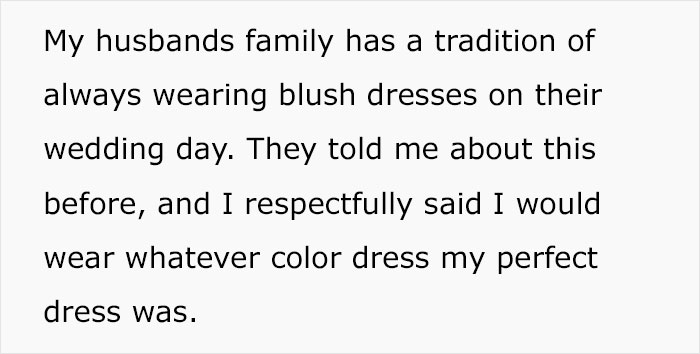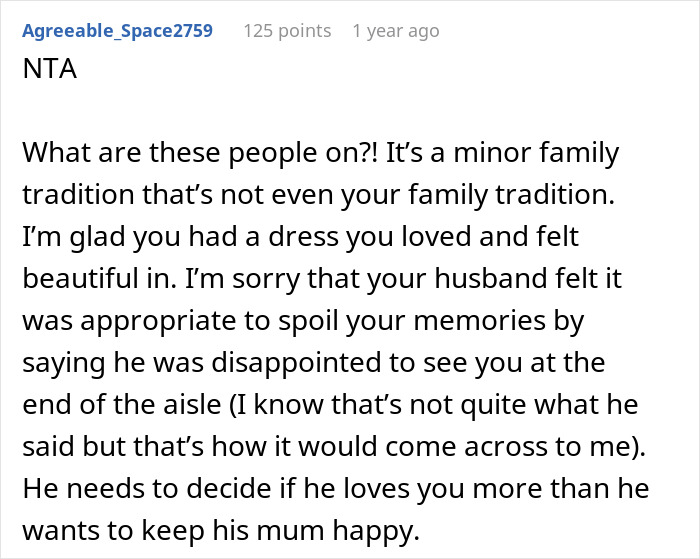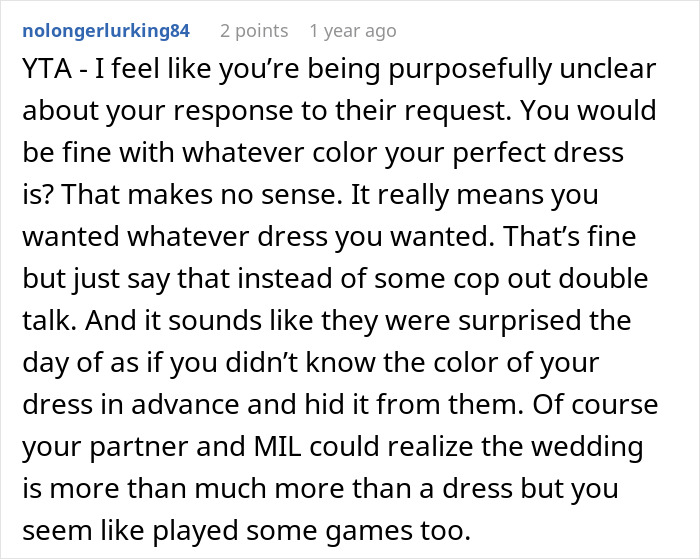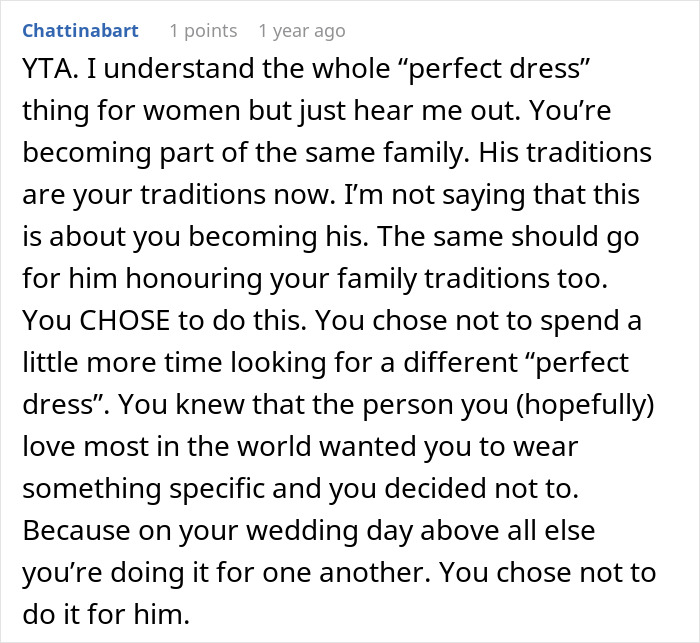Many women feel tension with their mother-in-law (MIL), and it’s not just the stereotypes that are pushing this narrative.
Awhopping 68%of females said their relationships with their husband’s mothers ranged from mildly to severely strained. Indeed, one wrong look, one selfish act, or one unpleasant comment can change this fragile alliance forever.
Soon to be married, RedditorAita-wedding12345clashed with her MIL because she refused to walk down the aisle in a pink gown. After seeing her wearing white during the ceremony, her husband and his mother didn’t hesitate to express how disappointed they were with her.
Rarely do MIL and DIL relationships go without disagreements

Image credits:Leah Kelley (not the actual image)
This MIL freaked out after seeing DIL walk down the aisle wearing a white dress





Image credits:Wavebreakmedia (not the actual image)

Image credits:aita-wedding12345
Why do some mothers-in-law seem to dislike their daughters-in-law?
This story probably makes some of us think mothers-in-law really don’t like their daughters-in-law that much, but why?Dr. Madeleine A. Fugèreweighed in on this question, saying that women experiencing this aren’t alone.
Mothers are also used to having an authoritative role, doing all the caretaking and decision-making. But when another individual joins the family and has their own traditions (cue the white dress), it can create disagreements. Some mothers-in-law might even become anxious about losing time with their children, which can lead to opinionated or stubborn behavior due to their fears. Research even suggests they may worry about being excluded when their child finds a new partner.
Additionally, some of the most intense conflicts over partner preferences between in-laws and adult children occur over attractiveness. Based on evolutionary theory, good-looking women are more likely to leave the relationship, and more attractive men generally care less about creating a family. Therefore, parents may object to handsome partners as they wish their children a long-term commitment that leads to kids of their own.
Image credits:Teona Swift (not the actual image)

Managing this complex relationship
A licensed psychotherapist,Elizabeth Fedrick, suggests that a mother-in-law should play a loving, encouraging, and supportive role in their child’s life, even after they get married. However, mothers shouldn’t be authoritative or influence their family’s decisions. If the parents overstep their boundaries, the relationship can quickly become difficult.
Taking one-on-one time with in-laws can also make the bond stronger and reduce the possibility of conflict. Getting to know each other and finding common interests or differing habits and behaviors may lead to a positive outcome. If that’s already achieved, maintaining mutual respect will keep things going smoothly.
When certain boundaries are overstepped or a mother-in-law acts disrespectfully, it’s important to ensure that she’s aware of this and to remind her that such behavior is not acceptable. Assuming that such habits continue, partners need to identify what the next steps are going to be, whether this would include spending less time with her, avoiding uncomfortable situations, or reducing the shared amount of information.
Image credits:Maycon Marmo (not the actual image)

Some commenters say she’s not wrong











Others believed she was selfish for breaking the tradition




Thanks! Check out the results:You May LikeSis Learns Only Bride’s Side Of Family Has To Pay For Their Destination Wedding, Decides To Skip ItMonika PašukonytėWoman Loses It As Mom Gives Away Her Wedding Dress To Pregnant SIL, Says She’s “Living In Sin”Rūta ZumbrickaitėCouple Refuse To Let Guy Bring A Plus-One To Wedding He’s Hosting, Now Have A Bigger ProblemIlona Baliūnaitė
Monika Pašukonytė
Rūta Zumbrickaitė
Ilona Baliūnaitė
Occasions